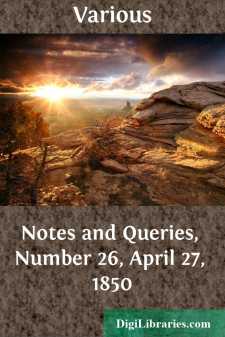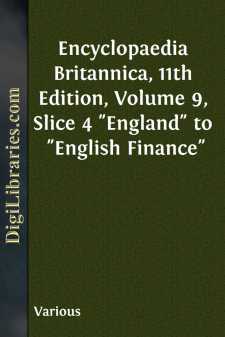Categories
- Antiques & Collectibles 13
- Architecture 36
- Art 48
- Bibles 22
- Biography & Autobiography 813
- Body, Mind & Spirit 142
- Business & Economics 28
- Children's Books 17
- Children's Fiction 14
- Computers 4
- Cooking 94
- Crafts & Hobbies 4
- Drama 346
- Education 46
- Family & Relationships 57
- Fiction 11829
- Games 19
- Gardening 17
- Health & Fitness 34
- History 1377
- House & Home 1
- Humor 147
- Juvenile Fiction 1873
- Juvenile Nonfiction 202
- Language Arts & Disciplines 88
- Law 16
- Literary Collections 686
- Literary Criticism 179
- Mathematics 13
- Medical 41
- Music 40
- Nature 179
- Non-Classifiable 1768
- Performing Arts 7
- Periodicals 1453
- Philosophy 64
- Photography 2
- Poetry 896
- Political Science 203
- Psychology 42
- Reference 154
- Religion 513
- Science 126
- Self-Help 84
- Social Science 81
- Sports & Recreation 34
- Study Aids 3
- Technology & Engineering 59
- Transportation 23
- Travel 463
- True Crime 29
Our website is made possible by displaying online advertisements to our visitors.
Please consider supporting us by disabling your ad blocker.
Notes and Queries, Number 26, April 27, 1850
by: Various
Categories:
Description:
Excerpt
NOTES
NICHOLAS BRETON.
Like Mr. COLLIER (No. 23. p. 364.), I have for many years felt "a peculiar interest about Nicholas Breton," and an anxious desire to learn something more of him, not only from being a sincere lover of many of his beautiful lyrical and pastoral poems, as exhibited in England's Helicon, Davison's Poetical Rhapsodie, and other numerous works of his own, and from possessing several pieces of his which are not generally known, but also from my intimate connection with the parish in which he is supposed to have lived and died. From this latter circumstance, especially, I had been most anxious to connect his name with Norton, and have frequently cast a reverential and thoughtful eye on the simple monument which has been supposed to record his name; hoping, yet not without doubts, that some evidence would still be found which would prove it to be really that of the poet. It was therefore with the utmost pleasure that I read Mr. Collier's concluding paragraph, that he is "in possession of undoubted proof that he was the Nicholas Breton whose epitaph is on the chancel-wall of the church of Norton in Northamptonshire."
It seems strange that, notwithstanding the number and variety of his writings, the length of time he was before the public, and the estimation in which he was held by his contemporaries, so little should be known concerning Breton, and the circumstances of his life be still involved in such great obscurity. In looking over his various publications, it is remarkable how little is to be gleaned in the preliminary prefixes which relate to his own personal history, and how very rarely he touches on any thing referring to himself. There is a plaintive and melancholy strain running through many of his works, and I am inclined to the opinion entertained by Sir Egerton Bridges and others, that cares, and misfortunes, and continued disappointments had brought on melancholy and despair, and that the plaintive and touching nature of his writings were occasioned by real sorrows and sufferings. This seems at variance with his being the purchaser of the manor and lordship of Norton, and in the possession and enjoyment of this world's goods. Thus in his Auspicante Jehova Maries Exercise, 8vo. 1597, one of the rarest of his works, in the dedication to Mary, Countess of Pembroke, speaking of his temporal condition, he remarks, "I have soncke my fortune in the worlde, hauing only the light of vertue to leade my hope unto Heauen:" and signs himself "Your La. sometime unworthy Poet, and now, and ever poore Beadman, Nich. Breton." And the "Address" after it is signed, "Your poore friend or servant N.B." I am aware that these phrases are sometimes used in a figurative sense, but am disposed to think that here they are intended for something real. And I am at a loss how to reconcile these expressions of poverty with his being the purchaser and enjoyer of such an estate. I shall wait, therefore, with considerable anxiety till it may suit the pleasure or convenience of Mr....












